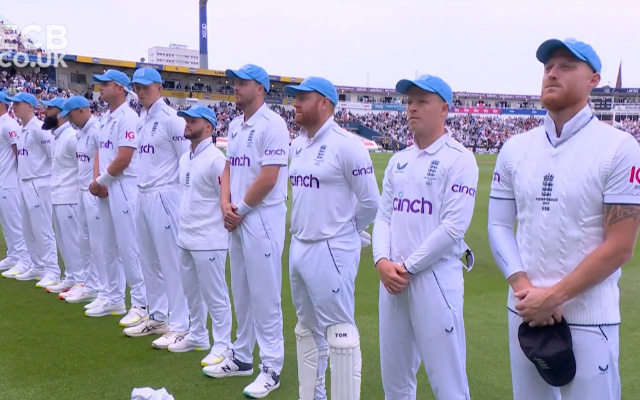'I will talk to Greg Barclay' - ECB chairman Richard Thompson seeks adaptable schedule after washed-out Manchester Test
"There's significantly more excitement and interest around Test cricket now," Thompson said.
2 Min Read


In the fourth Ashes Test at Manchester, rain played spoilsport on England's hopes of reclaiming the men's Ashes, reigniting the debate on flexibility in cricket schedules. Richard Thompson, the chair of the England and Wales Cricket Board (ECB), has expressed his intention to lobby the International Cricket Council (ICC) chair, Greg Barclay, to consider more adaptable scheduling options.
The fourth Ashes Test at Emirates Old Trafford witnessed a frustrating end as the fifth day was washed away without a single ball being bowled. Adding to the predicament, slow over-rates on the preceding three days had already resulted in the loss of several overs. Former England captain Joe Root raised the issue, suggesting the need for greater flexibility in the hours of play to ensure that all scheduled overs are bowled.
Richard Thompson indicated that he would engage in discussions with Greg Barclay regarding the evolving landscape of Test cricket. He highlighted how England have redefined the format, generating more excitement and interest around the game. Thompson acknowledged that the situation calls for a broader conversation to accommodate unforeseen events like these and make schedules more flexible.
"I will talk to Greg Barclay, the chair of the ICC, for sure, just in the sense of him understanding what England has done to Test cricket. There's significantly more excitement and interest around Test cricket now, and this is part of that broader conversation, to ensure that schedules can be more flexible to accommodate this type of strange eventuality," he said in an interview with BBC Radio 4's Today program.
One of the major talking points raised by Joe Root was the lack of flexibility in England's playing hours. Despite the daylight lasting until 10 pm, most Tests start at 11 am and rarely continue beyond 7 pm. Root questioned why rigid rules dictate playing hours, advocating for innovative ways to maximize play and make up for lost overs rather than penalizing teams for slow over-rates.
The ICC's playing conditions for Test match currently give the home board the authority to determine playing hours, but Thompson suggested that a review of the schedule and playing times could be beneficial. However, he acknowledged that finding a balance between the expectations of the audience, broadcasters, and logistical practicalities is crucial.
While the concept of reserve days, like the one employed in the World Test Championship final, has been deemed a great idea, implementing it for each Test would require significant adjustments to the overall schedule.
Download Our App